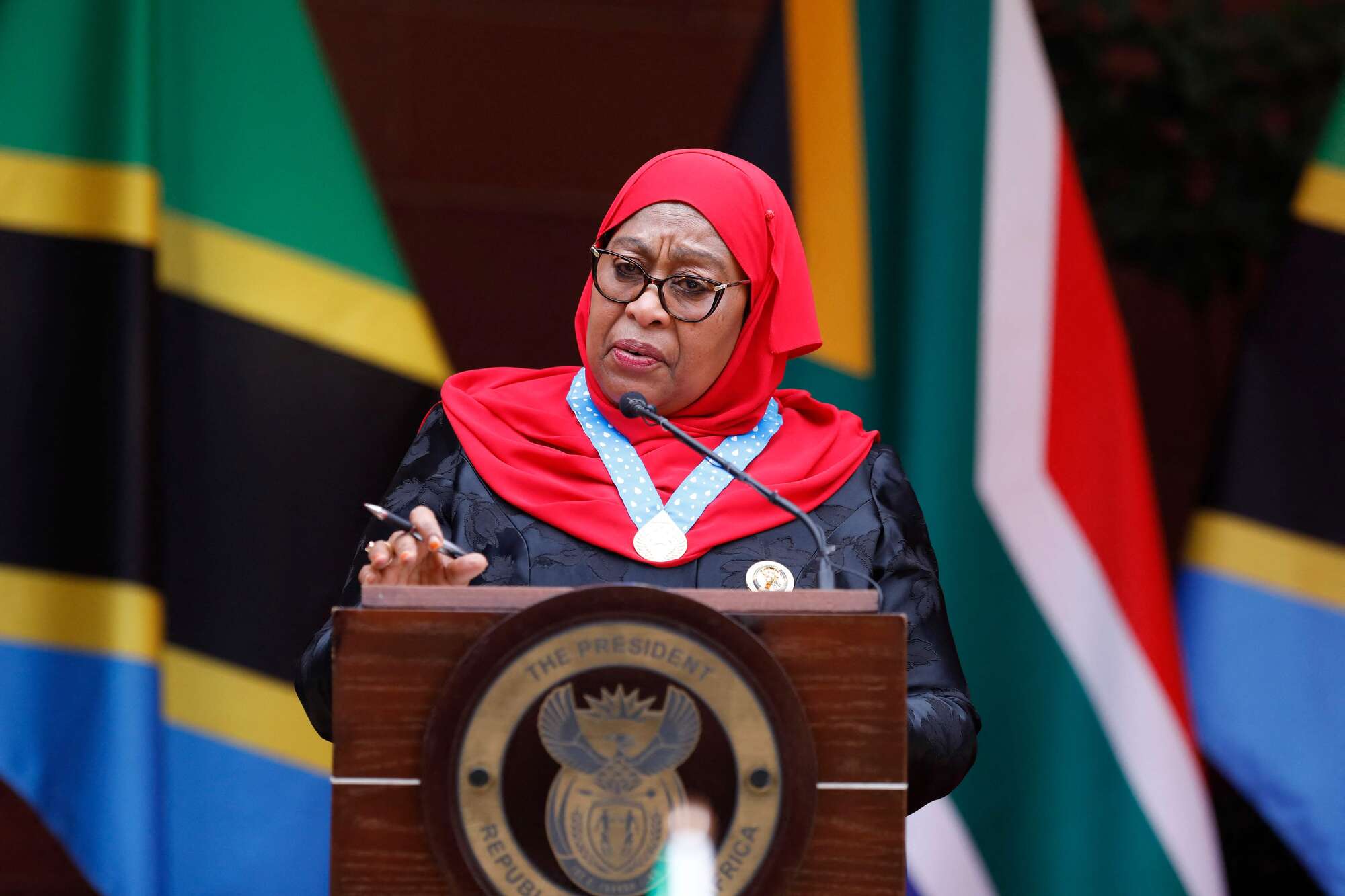TANZANIA Communication Regulatory Authority (TCRA) has given all users of telecommunications services in the country until January 31 next year to verify their active SIM cards.
According to the TCRA the active SIM cards should be verified by using the National Identification Number (NIN) .
The Director General of TCRA, Dr Jabiri Bakari, said in Dar es Salaam yesterday that unverified active SIM cards will not be accessed after the deadline, because they will be barred from receiving or providing telecommunication services.
The main goal of the exercise according to the TCRA Chief is to deflect communication fraud and ensure user safety.
He emphasised that, every user of telecommunications services is required to verify his/her active phone number(s) using a citizenship ID or, alternatively, by using a NIDA provided National Identification Number-NIN, which can be obtained from the National Identification Authority-NIDA office.
“Apparently we’re running a significant public awareness campaign that aims at reducing the number of sim-cards registered by third parties,” he said.
He added that some telecommunication service users may have been misusing their sim-cards by exploiting a loophole that allows them to remain under the registration of third parties; therefore, “we want to ensure that all users are identified by their sim-cards, which are registered using their own national identification information and not others,” he pointed out.
Dr Jabiri noted that there could be unscrupulous users who engage themselves in unlawful and disagreeable activities using telecommunication services, adding that the current exercise aims to deter such perpetrators from disturbing the telecom usage ecosystem.
Equally, he added that the exercise intends to establish a more accurate database of valid active SIM cards in the country and enhance lawful ownership of sim-cards and well projected data of vivid telecommunication service users in the country which shall enhance reportage of communication sector performance.
“If everyone of us fully performs this sim-card verification exercise, we shall succeed in calming minor turbulences of the telecommunication service atmosphere, which are created by few unscrupulous users who misuse the communication space, hence it will be safer for each of us receiving services,” he further said.
On his part, TCRA Manager of Customers and Consumers Affairs, Mr Thadayo Ringo, reiterated that the verification process is simpler to be executed and completed by anyone owning and using a telecommunication device and services.
He said TCRA has assigned a special short code *106# used free of charge, adding: “Users will need to dial *106#, after which a service menu with options 1 through 5 will appear on their device screen. If they select option 3, they will be able to view quantity of phone numbers registered from all networks that are associated with their Nationality ID number. If the user discovers additional known or unknown mobile phone numbers associated with their NIDA identification number, they shall be necessitated to take action which may involve contacting the service provider; agent kiosks or nearby service shop to delete the unaccounted-for number(s).”
He said TCRA has observed that some users of mobile network services have avoided verifying their sim-cards for a variety of reasons, including avoiding to be identified by their original identity and detection of criminal acts they commit through telecommunication services, opting instead for a technique of purchasing sim-cards from law-breaking Mobile network operators agents, the sim-cards which could be used to commit unlawful acts.
The TCRA Officer insisted that the law requires all users of telecommunication services to have their sim-cards registered by using own National Identification should be followed and abided by. Additionally, secondary users who acquired sim-cards that are registered using identification data of third parties must re-register by changing identification information before the end of January next year or else service will be halted.
Early in November of this year, the communication regulator announced that 52,087 mobile phone numbers in total, including those linked to online crimes “Matapeli” carried out through mobile networks, had been blacklisted or phased out.
Source: allafrica.com
Share this news
This Year’s Most Read News Stories

President Samia takes on Tanzania’s web of corruption
The President takes on the web of corruption in the Tanzanian government and quasi-government institutions flagged by the newest report by Controller & Auditor-General Charles Kichere. Continue Reading

Tanzania Confirms Outbreak of Marburg Virus Disease
Dodoma — Tanzania today confirmed an outbreak of Marburg virus disease in the northwestern Kagera region after one case tested positive for the virus following investigations and laboratory analysis of suspected cases of the disease.
President of the Republic of Tanzania, Her Excellency Samia Suluhu Hassan, made the announcement during a press briefing alongside World Health Organization (WHO) Director-General, Dr Tedros Adhanom Ghebreyesus, in the country’s administrative capital Dodoma.
“Laboratory tests conducted in Kabaile Mobile Laboratory in Kagera and later confirmed in Dar es Salaam identified one patient as being infected with the Marburg virus. Fortunately, the remaining suspected patients tested negative,” the president said. “We have demonstrated in the past our ability to contain a similar outbreak and are determined to do the same this time around.”
A total of 25 suspected cases have been reported as of 20 January 2025, all of whom have tested negative and are currently under close follow-up, the president said. The cases have been reported in Biharamulo and Muleba districts in Kagera.
“We have resolved to reassure the general public in Tanzania and the international community as a whole of our collective determination to address the global health challenges, including the Marburg virus disease,” said H.E President Hassan.
WHO is supporting Tanzanian health authorities to enhance key outbreak control measures including disease surveillance, testing, treatment, infection prevention and control, case management, as well as increasing public awareness among communities to prevent further spread of the virus.
“WHO, working with its partners, is committed to supporting the government of Tanzania to bring the outbreak under control as soon as possible, and to build a healthier, safer, fairer future for all the people of Tanzania,” said Dr Tedros. “Now is a time for collaboration, and commitment, to protecting the health of all people in Tanzania, and the region, from the risks posed by this disease.”
Marburg virus disease is highly virulent and causes haemorrhagic fever. It belongs to the same family as the virus that causes Ebola virus disease. Illness caused by Marburg virus begins abruptly. Patients present with high fever, severe headache and severe malaise. They may develop severe haemorrhagic symptoms within seven days.
“The declaration by the president and the measures being taken by the government are crucial in addressing the threat of this disease at the local and national levels as well as preventing potential cross-border spread,” said Dr Matshidiso Moeti, WHO Regional Director for Africa. “Our priority is to support the government to rapidly scale up measures to effectively respond to this outbreak and safeguard the health of the population,”
Tanzania previously reported an outbreak of Marburg in March 2023 – the country’s first – in Kagera region, in which a total of nine cases (eight confirmed and one probable) and six deaths were reported, with a case fatality ratio of 67%.

Sign up for free AllAfrica Newsletters
Get the latest in African news delivered straight to your inbox
In the African region, previous outbreaks and sporadic cases have been reported in Angola, the Democratic Republic of the Congo, Ghana, Kenya, Equatorial Guinea, Rwanda, South Africa and Uganda.
Marburg virus is transmitted to people from fruit bats and spreads among humans through direct contact with the bodily fluids of infected people, surfaces and materials. Although several promising candidate medical countermeasures are currently undergoing clinical trials, there is no licensed treatment or vaccine for effective management or prevention of Marburg virus disease. However, early access to treatment and supportive care – rehydration with oral or intravenous fluids – and treatment of specific symptoms, improve survival.
Source: allafrica.com

‘Sovereignty alone won’t solve Zanzibar economic woes’
The ruling party in Zanzibar on Monday , March 13, responded to growing demands for full autonomy in the Islands, saying sovereignty doesn’t guarantee economic strength.Continue Reading











